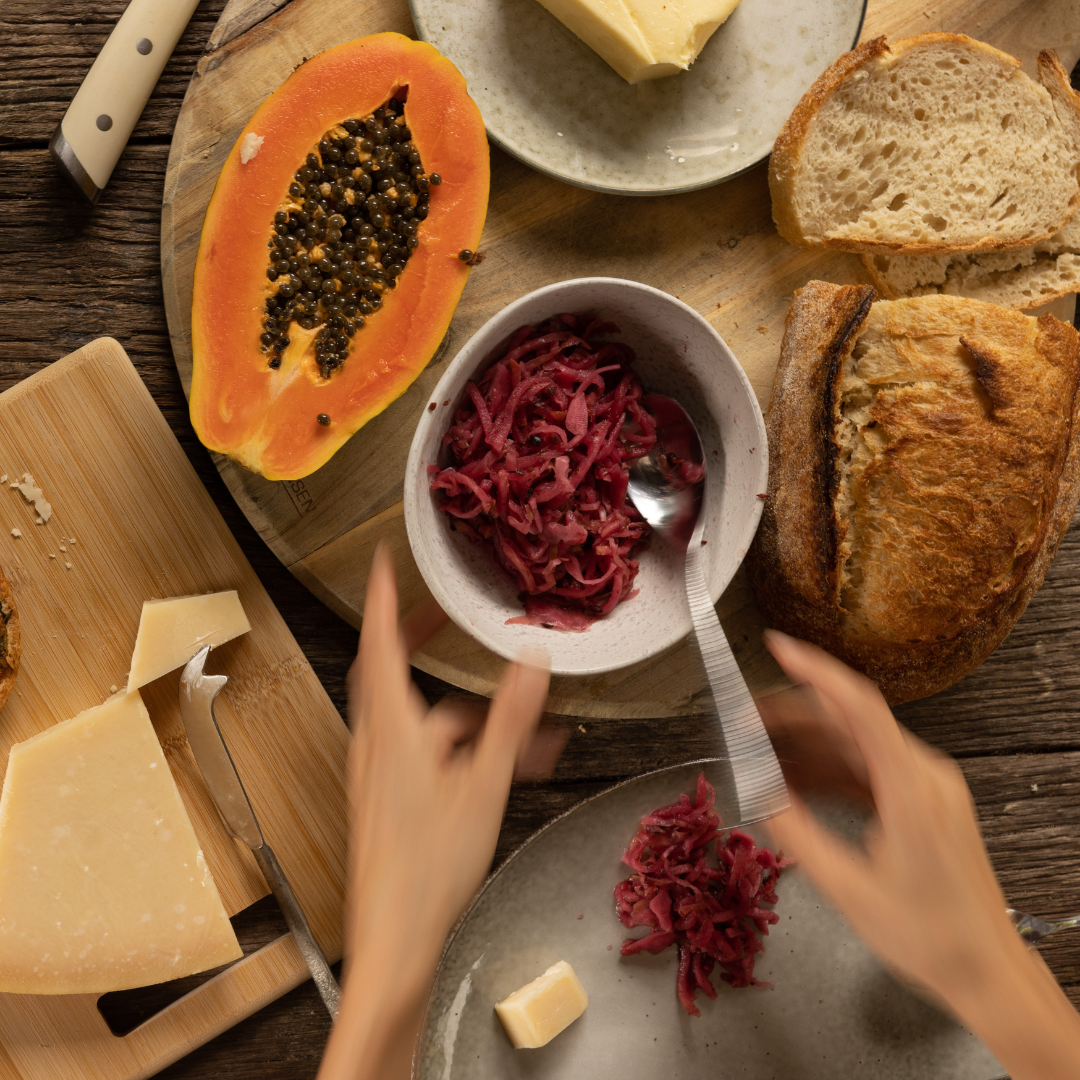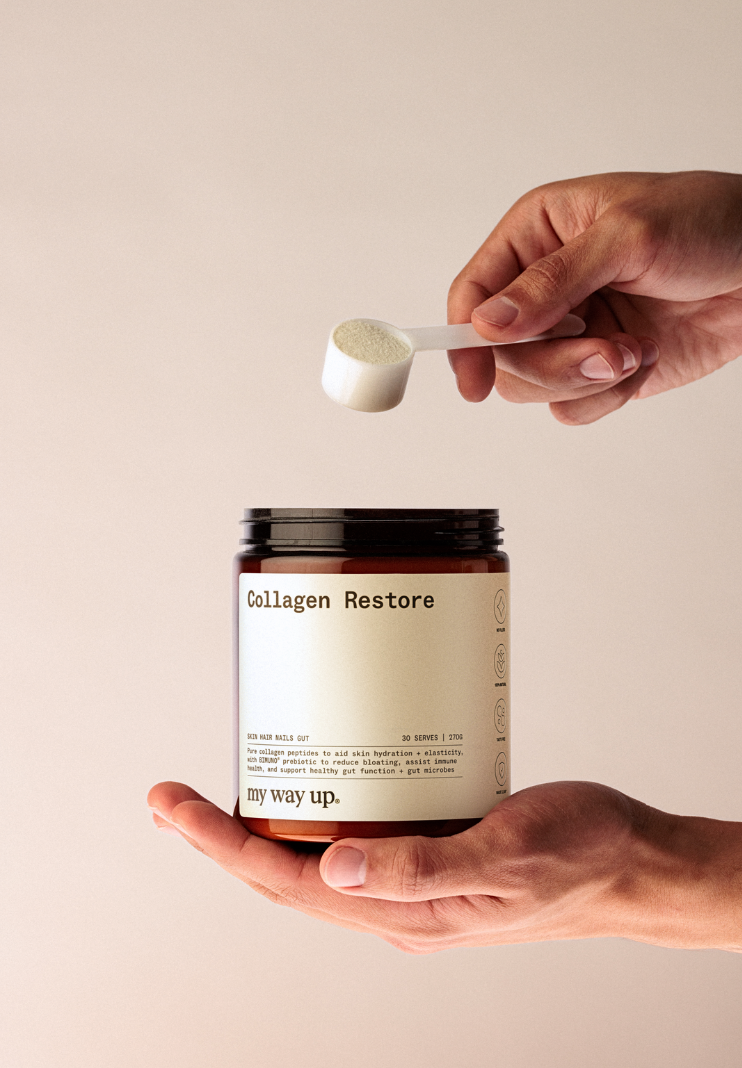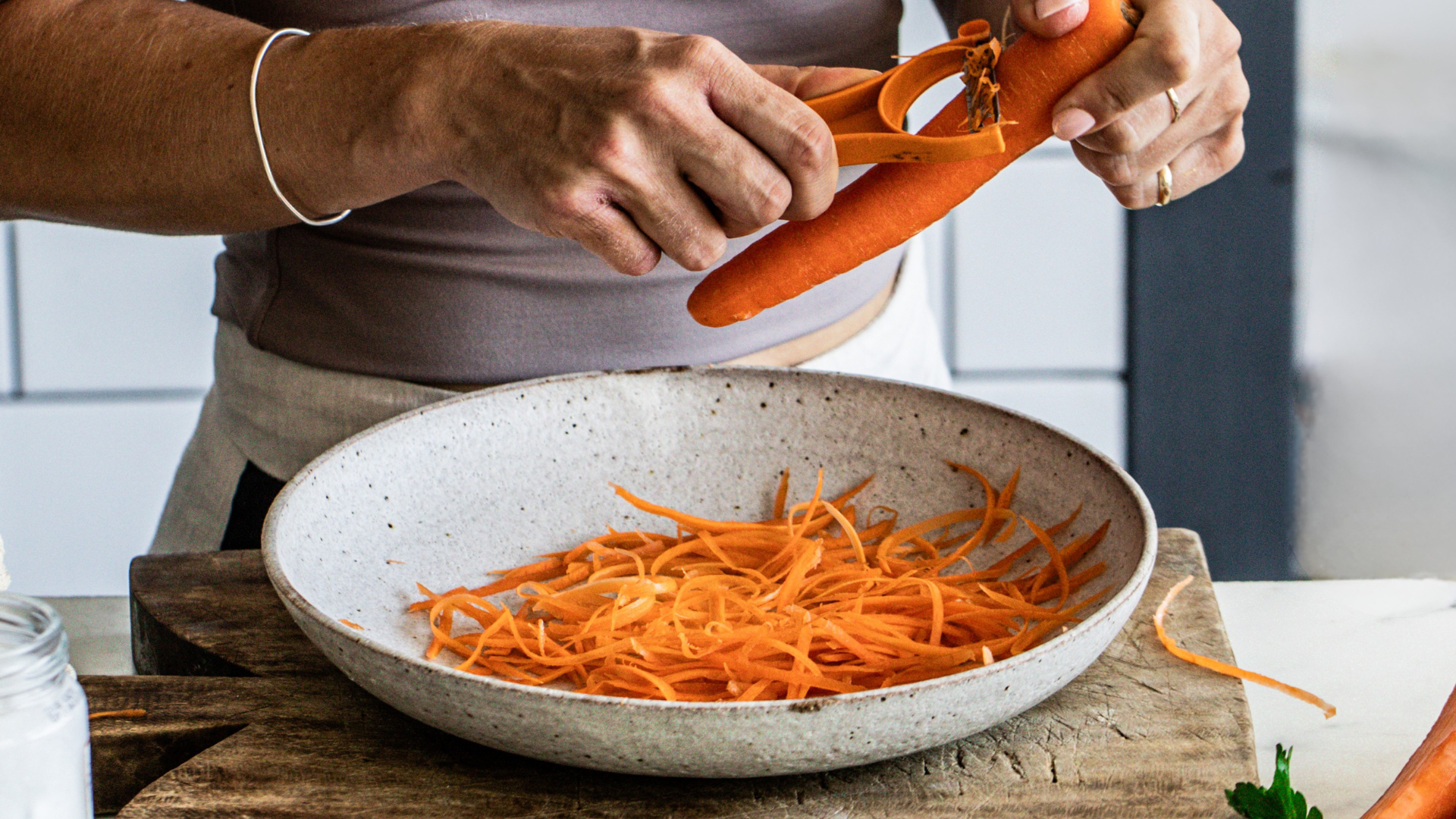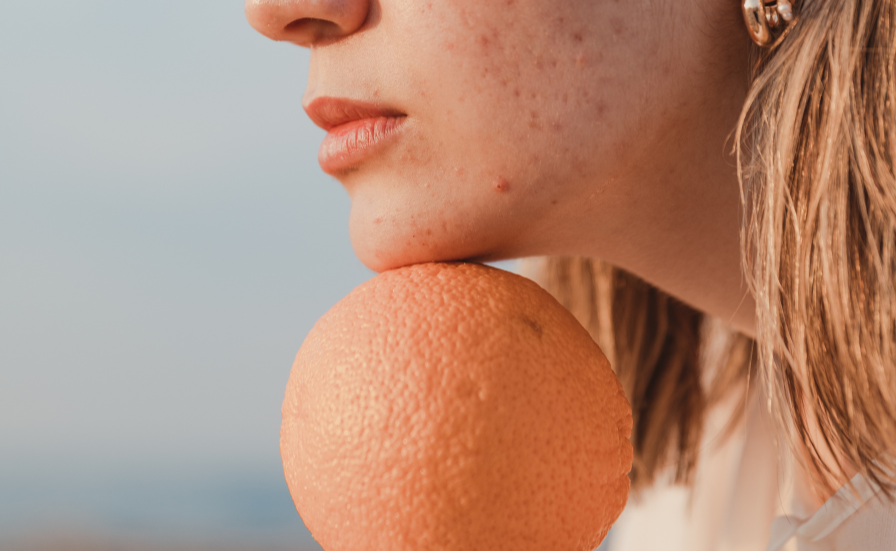Gut problems, skin issues, and stubborn weight got you down?
After helping thousands of people reclaim their health, here are the 7 foods that deliver the biggest impact - plus the foods that are secretly sabotaging your progress!

After helping thousands of people reclaim their health, here are the 7 foods that deliver the biggest impact - plus the foods that are secretly sabotaging your progress!

Your gut lining is only one cell thick - thinner than tissue paper.
When it's damaged, toxins leak into your bloodstream causing inflammation, breakouts, and bloating.
Collagen, gelatine and bone broth provide the building blocks to repair this delicate barrier. Think of them as liquid bandages for your gut.
Pro tip: Add a scoop of high-quality Collagen Restore™ to your morning coffee, tea or smoothie for an effortless gut-healing boost (no taste or flavour).

Tropical fruits like papaya, melon, and kiwi are packed with digestive enzymes that help break down food before it can ferment and cause bloating.
Plus, they're easy to digest and naturally lower in the hard-to-digest fibers (FODMAPs) that trigger gut issues in sensitive people.
Skip: Apples, pears, and stone fruits if you're dealing with digestive issues right now.

The closer your food is to its original form, the better your gut will handle it.
Shellfish (especially oysters) deliver more bioavailable zinc than any supplement. Organ meats are nature's multivitamins. Pasture-raised eggs provide complete proteins your gut craves.
These "old school" foods have nourished humans for thousands of years - your gut knows exactly what to do with them.
Can't stomach organ meats? Try desiccated organic liver capsules for all the benefits without the taste.


Your body needs fat to absorb vitamins A, D, E, and K - the nutrients that keep your skin glowing and metabolism humming.
Opt for traditional fats such as Coconut oil, butter, ghee and extra virgin olive oil
Avoid: Seed oils (canola, soybean, sunflower) that create inflammation and mess with your hormones.

The best meals have 3-5 ingredients, max.
Example winning combo: Scrambled eggs with parmesan, slice of sourdough, berries, and coffee with a scoop of Collagen Restore™
When you simplify your meals, quality matters more than quantity. Your gut can focus on digesting and absorbing nutrients instead of fighting through a chemical cocktail.

Before eating anything, ask:
If you can't answer these confidently, it's probably not worth eating.
Your gut health affects everything - your skin, your weight, your mood, your energy.
Start with just 2-3 foods from this list and minimise seed oils, processed foods, additives and emulsifiers. Small changes compound into massive results.
Remember: Healing takes time. Be patient with your body as it recovers from years of modern diet damage.
This article is for informational purposes only and does not constitute medical advice. The information contained herein is not a substitute for and should never be relied upon for professional medical advice. Always talk to your doctor about the risks and benefits of any treatment. Learn more about our editorial standards here.


